Lately when someone asks me how I'm doing, I offer this: in the past 4 months, I've led 6 funerals.
Dear, dear people whom I've loved and people who've held significant roles of leadership and care in our congregation have died after seasons of debilitating illnesses. Some got sick and died quickly. Some simply reached the end after long health struggles. So much of my pastoral work the last 4 month has included sitting at bedsides of the dying, talking about funeral plans and services. Heavy stuff. Privileged work. Sobering.
With all of this in mind, I'm offering grief as our word of the week because it's been something I can't get off my mind.
Grief a word that means: mental distress one feels while experiencing a loss.
Maybe for you, this is not a season or grief, but I'm sure you know someone is walking through such a time right now. And if you don't, our world's news is full of stories of the grieving. I'm thinking especially about our friends in the Middle East who are continuing to navigate such a horrible war.
This is what I know: as much as you and I would love to shy away from the tender and painful emotions of loss-- grief can be one of life's greatest teachers, helping us focus on what is most important in a way that nothing else can.
Here's what I'm noticing about grief's invitations:
1. The final conversations you have with loved ones are never all you want them to be (you always want more), but that you remember those last words and savor them like gems. So maybe life would feel richer if you had more "get to the point" conversations sooner?
2. You never know when memories of loved ones will float back to find you. Music can be triggering. So can times when when you really want to have a talk on a subject. Or happy times were your loved one's absence feels overwhelming. So maybe you should just make friends with your grief knowing in part it will always be with you?
3. The journey of dying doesn't have to be avoided like a contagious disease. Beautiful things happen in the transition from this life to the next for those who can stay awhile and participate in it. So maybe you shouldn't be so afraid the next time you are asked to be present at a passing?
While my heart still feels tender for our church's grief, I smile at the beauty of what has been our experience of so many funerals. Community. Hope. Hands held. Joy through the cracks. And though there is a motto around our congregation right now, "No one else die now for a while" I do know that death will always be present in my living experience as it will yours. So we can't not think about it. We can't not talk about it.
May your grief be a good teacher for you too-
XO
Elizabeth
This weekend, Mother's Day, while joy-filled for many is full of anxiety for others.
If you're in the anxiety producing camp, know I am with you.
It's so hard to have complicated feelings about the mothers in your life.
It's so hard to have longings for children (or relationships) unfulfilled. Or to be grieving when everyone else is so happy.
We don't know what to do with these sort of "uneasy" feelings in our "How are you?" "I am fine" culture.
And faith communities really are the worse. Mother's Day is also know as a the day that the grieving don't feel safe at church.
I need to tell you that even as a pastor, one year on Mother's Day, I took the day off. I turned off my phone. And I just couldn't wait till it was Monday already!
I couldn't handle someone else asking me "When I was going to have kids already?"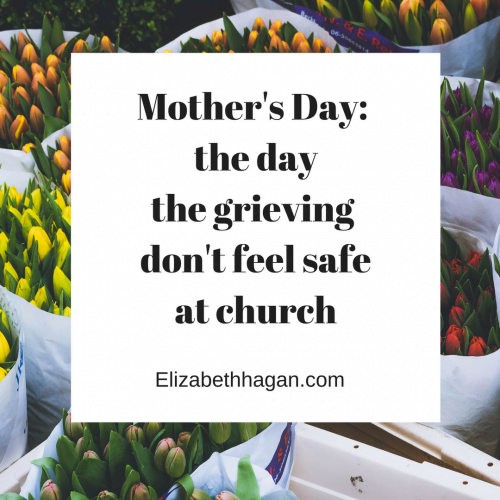
And even now, though I am a mother with little feet running around my house (after a long infertility journey), I still find Mother's Day so complicated.
As much as there is joy in my life, there is also loss, frustration and delayed expectations.
I don't believe I'm alone in these feelings, so as a pastor, I want to be sensitive to the complicated feelings so many of my beloveds will bring to worship on Sundays.
For it's my belief that we can help the grieving feel safer at church by the attention we give to our words and presence on Sunday (or any day really!)
Here's a prayer I wrote in the spirit of truth-telling, sensitivity and kindness. Adapt, use and share as it's helpful to you.
One: Mothers come in many different forms, and today we remember them all.
Many: Thank God for all mothers.
One: For those women who have left earth too soon and in whom we miss dearly.
Many: Thank God for these mothers!
One: For every woman who is raising children now making sacrifices for her children’s becoming.
Many: Thank God for these mothers.
One: For those women who have taken in others’ children through adoption and foster care, showing us that the love of God far extends beyond biological ties.
Many: Thank God for these mothers.
One: For those women with grieving hearts for children that could have been with futures so different from they planned.
Many: Thank God for these mothers.
One: For the special neighbors, teachers, and friends who’ve nurtured us, supported us and helped us to become the people we are today.
Many: Thank God for these mothers.
One: For mothers in which our relationships are complicated, difficult or strained, but who have forced us to choose healthier paths for our lives.
Many: Thank God for these mothers.
One: Mothering God, help us all to reflect more of your compassion, kindness and strength to those around us today. As Meister Eckhart has said, “We are all meant to be mothers of God. God is always needing to be born” let this be true of us! We need more of you, here, God!
Many: Thank God for mothers. AMEN
If I can be a resource to you, as a grieving mother, particularly, don't hesitate to contact me.
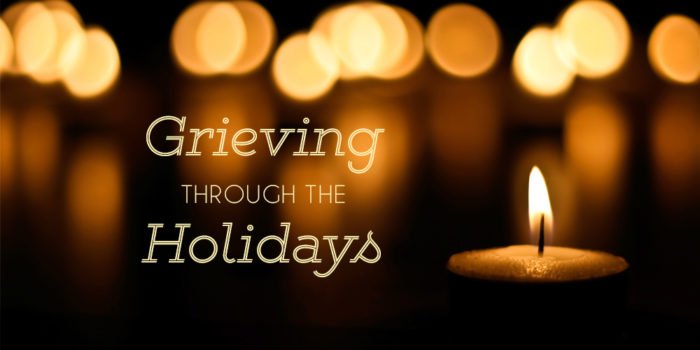
Someone around you is grieving right now. Even if you don't know his or her name. Even if you don't know why. Even if you'll never know why. So many people grieve on overdrive at this time of year.
Recently, I was teaching at "Attending to the Grief We Don't See" workshop at a congregation and I encouraged them to pay attention to certain times of the year trigger grief.
We all agreed that a season that tops that list are the calendar days from Thanksgiving to New Years. Such was my experience for years as my husband, Kevin and I waited with hope that we'd be parents one day. For a couple expecting but not yet expecting a baby or who have recently lost a baby, Advent can be a miserable time. (As everything in the culture screams children and babies!)
And for others of us, we're weighed down heavy by--
Hearing our cancer has returned.
A bout of depression which isn't getting better.
A child diagnosed with a learning disability.
An aging parent given months to live.
Enduring a job search with dead-end after dead-end.
Family dynamics that are just weird.
While songs of “peace on earth, goodwill to men” and “joy the world, the Lord has come!” are blasted on the radio, the grieving among us experience December more like Holy Week than Advent.
That first Christmas without mom here . . .
That second Christmas of being a divorced dad sharing custody of your kids . . .
That third Christmas that your son is in jail . . .
And on and on it goes.
Yet, because it is the holiday season many of us want to be happy, regardless. We want to be able to put whatever is bothering us aside and rejoice as the scripture exhorts us too. We want joy—even as much as our life circumstances aren’t naturally joyful.
So how can we be joyful? Is it even possible for the grieving?
I would love to offer that joy is a formula that can be followed (as many preachers offer: Jesus first, Others second, and Yourself last).
I would love to suggest that joy is an emotion of the will that we can just pray harder to make happen.
Or, I would love to tell you if you "Sing one more Christmas carol or bake one more sheet of cookies, then joy of the Christmas spirit will find you!"
But I can't.
Maybe you’re better at joy than I . . . but it has been my experience that seeking joy in the midst of waiting does not come through formulas and cookies.
Waiting on joy has looked more like:
Crying until I’ve run out of tears.
Sitting among the rocks and dirt in my backyard.
Drinking too much wine.
Pulling myself out of bed, brush my teeth and go to work without clean socks believing I'm doing the best I can.
And I've done these things on repeat. Then when I've been lucky, others have come to sit with me and done these things with me.
Here is what I most want to tell you: as I've allowed myself to feel what I feel and been honest with others about it, a miracle has happened.
My spirit has began to move just a little. It moved toward hope—that the next day would be brighter than the one before.
It moved toward love—that someone needed me to notice their pain so getting out of bed was, in fact, a really great idea.
And finally it moved toward joy—that though sorrow lasts for the night, in the morning joy comes.
Such is what I'm hoping for you this holiday season.
Your joy might not be bright and showy. You may not be the one in the choir singing the carols loudly.
But you'll be hanging on because of your quiet strength. And you will get through because you're braver than you know.
_____
Did you know I wrote a book for Advent? Check out Seeing a Different World here.
Want to hear more of my grief story? Check out my spiritual memoir about my long season of infertility. You can buy it here.
Would you like me to come speak with your congregation or community group about sitting with grief during tough times? Contact me.
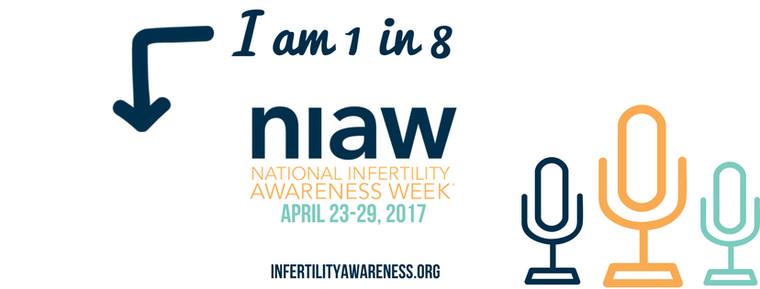
Hey friends- thanks for hanging with me this week during National Infertility Week hearing these stories. I hope you've had your eyes opened to how common infertility is-- touching people in all walks of life. I'm so glad to meet Lauren, a friend of a friend and blog reader this week. I was so excited to learn of her willingness to share with us about her experience. Such bravery in these words below. Keep reading!
Fifty-four. That is the number of months we spent waiting to see a positive pregnancy test. For 1642 days, we carried the feelings of hopelessness, confusion, and sadness while dealing with unexplained infertility.
Our story isn’t unique. The details may be different, but our experience with infertility is a story that one in eight couples, unfortunately, can tell. To someone suffering from infertility or pregnancy loss, you feel less alone and find comfort in knowing that others can relate. But you also feel intense heartache for those who understand the feelings and fears that come with traveling this journey for any length of time.
I think all of us in this community can agree that infertility has taken away so much. But the experience of the past 4 ½ years has propelled my husband and I on a powerful learning journey.
Infertility taught me about marriage.
My husband and I learned to be vulnerable and communicate in ways we wouldn’t have been able to without going through infertility. I got to know him truly as my partner, see him exposed with emotions, and feel his pain in a way I didn’t know existed. He was suffering too and together we could share the grief and care for each other’s hearts better and more intentionally than before.
Infertility taught me about the importance of support systems.
When we decided to be open about our journey, we were overwhelmed by the response. I was amazed by those who hadn’t experienced infertility, but wanted to know how they could show support. Others who had walked this path or were still in the midst of it reached out to offer a shoulder to cry on. Without this critical network, we would have suffered in silence and lived in an even darker, more hopeless place.
Infertility taught me about selflessness.
When we were at our lowest and struggling to figure out how to pay for IVF, we each cried out to God, unbeknownst to the other, to acknowledge we couldn’t do this on our own. It was too much for us to bear and we needed Him. Literally hours later, our best friends stepped up to the call. Knowing we would never ask for help, they took our burden upon themselves. They secretly set up a fundraising account, made large donations, and then asked friends and family to contribute. The exact amount needed for our IVF fee was raised in just over 24 hours. Without this selfless act, we would never know what it was like to hear the heartbeat of our baby. How can you repay that? You can’t. You accept it with grace and use it to fuel compassion and kindness in your life moving forward.
Infertility taught me about God.
I felt betrayed. I was angry and bitter. Starting a family was a noble thing to do, so why were we being punished? Admittedly, my faith wavered. Then, my mother, an oh so wise woman, said something to me that I will never forget: “Lauren. It may be that this isn’t about you.” How dare she suggest that my pain was for someone else’s gain! It isn’t fair for me to hurt, both physically and emotionally, for this long only to have someone else benefit. But then I thought about it - What if my suffering was for the good of someone else? What if a friend was silently watching to how I was handling this trial and because of it moved closer to God? Once I started thinking about it that way, my relationship with Him changed. I started to meditate on the words “Thy will be done.” I understood this hurt may never go away, but I had to accept it and trust that no matter the reason for this painful season of my life, He would bring me through to the other side in some fashion and although I may never know or see it, someone’s life was changed for the better.
After countless tries with alternative medicines, three cycles with Clomid, three medicated IUIs, and one round of IVF, we are navigating a new journey – life after infertility. We are some of the lucky ones. For many, it takes multiple rounds of IVF to conceive. But we accept this blessing with tears and welcome arms.
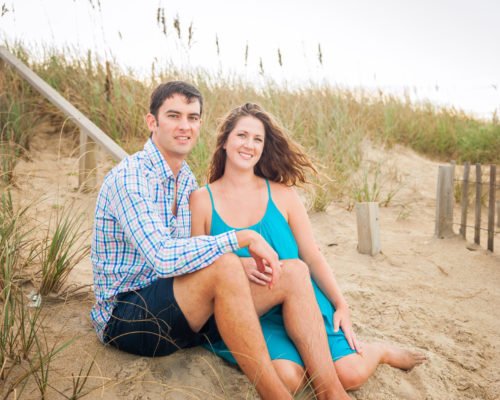 While I would never wish infertility on anyone, I am a better wife, friend, daughter, and soon-to-be-mother because of it.
While I would never wish infertility on anyone, I am a better wife, friend, daughter, and soon-to-be-mother because of it.
I love being awarded the privilege of using #webeatinfertility on my Instagram posts, but I’m not sure claiming we beat infertility is the right choice of words. Infertility will always be part of us.
Even now at almost 15 weeks pregnant, I still feel the pain and heartache of the past 54 months.
I truly believe acknowledging that pain and constantly reminding myself of the honor bestowed on me that I so desperately prayed for will keep me grounded in motherhood and in my journey to live the best life He meant for me.
Lauren is a nonprofit communications professional, native Midwesterner, and a lover of donuts and coffee. She currently lives in the Outer Banks in North Carolina with her husband, Andy, where she spends as much time as she can soaking up the sun on the beach and staying true to her roots by keeping up with her favorite Chicago sports teams.

Friends, it’s National Infertility Awareness week. Welcome to several new readers of Preacher on the Plaza! And I’m happy to use this blog over the next couple of days to give others a platform to share their stories of grief, loss and deferred longing. Even if “infertility” is not your thing and you read my blog for other reasons, I ask you stick with me for the next couple days. Hear these stories. Chances are you know someone going through infertility or who has infertility in their story just as I wrote about in Birthed: Finding Grace Through Infertility.
Today I'm glad to welcome my friend and former seminary classmate, Ronda to the blog. She's a new mom (congrats, Ronda and Stacy!) but has a powerful story to tell about how "having a baby" is really not the end to infertility (Sigh).
This past Sunday I brought my two-week old son to church for the first time. I wanted him to feel the love of this community that has prayed for him since before he was conceived. As the chords of the familiar opening hymn, “Worthy of Worship” began I found myself once again singing this hymn with tears streaming down my face, something that had become all too familiar over the past three and a half years. The words of this hymn have affected me deeply. On this morning I sang with gratitude for the journey and with a realization that I had not reached the end as I’d expected.
Worthy of worship, worthy of praise,
Worthy of honour and glory;
Worthy of all the glad songs we sing,
Worthy of all the offerings we bring.
You are worthy, Father, Creator.
You are worthy, Saviour, Sustainer.
You are worthy, worthy and wonderful;
Worthy of worship and praise.
When I first learned I was pregnant I was ecstatic.
My husband and I had been trying to get pregnant for ten months and we were elated to see a positive pregnancy test. Immediately we began dreaming of what this life growing inside of me would be. However, two weeks later the bleeding began, signifying that the tiny life that we wanted so much was no more. Unfortunately this was a scenario we would experience twice more over the next couple of years. It would take months or a year to get pregnant only for that pregnancy to quickly come to an end. It came to the point where we would pray for a positive pregnancy test and dread it at the same time.
Throughout these painful losses I would go to church and sing “Worthy of Worship” with tears streaming down my face, barely able to make out the words, wondering where God was.
Eventually we began to see a fertility specialist. Maybe we would finally learn why it took so long for me to get pregnant and why I lost each pregnancy. What followed were months of invasive tests, oral medicines, injected medicines, and intrauterine inseminations. Each month brought new emotions, a mix of hope and dread. All of this was taxing on my body and spirit, and it was hard on my marriage. Last summer I wrote to a friend “I’m sitting here in my dining room about to inject myself with another round of fertility drugs, which affect me body and spirit, and I wonder if it’s worth it, if I should just give up.” And yet I would sit in church, singing “Worthy of Worship” with tears streaming down my face feeling lonely and forgotten.
A little over two weeks later, I once again saw two pink lines. Yet, I couldn’t be excited; I wouldn’t let myself be excited.
At the first appointment, where we saw the tiniest speck on the ultrasound, the doctor said that we needed to continue to wait before being optimistic. Then, a few weeks later we heard a heartbeat for the first time. As each week progressed I finally allowed myself to relax a little, to begin to plan. Although I was still waiting for bad news, for the doctor to tell me that things weren’t going well and that I would once again lose the life growing inside of me. I held my breath throughout the entire pregnancy only exhaling fully when my son was placed in my arms for the first time. Two Sundays later I sang “Worthy of Worship” with tears streaming down my face overwhelmed with feelings.
I thought that holding my child would bring the journey of infertility and pregnancy loss to an end. But I’m beginning to realize that this isn’t the end of the journey, or at least it’s not the end I envisioned.
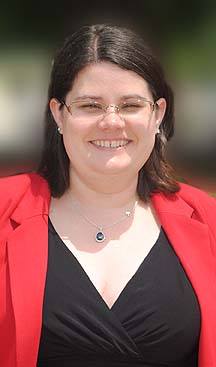 I find that I still mourn the three lives I never got to meet. At the same time I am reminded not to take the life I hold in my arms today for granted. Somehow the journey has given me a different perspective, one which makes me profoundly grateful for every moment (even the sleepless ones), and one which is so deep that I still don’t have words. What I know is that I have been forever changed by my journey of infertility and pregnancy loss. I discovered a community which deeply understood what I was, and am going through. It is this community which is now helping me to see that while the journey hasn’t ended in the way I thought, there is something new coming forth. So I’ll keep singing “Worthy of Worship” with tears streaming down my face in recognition of the journey that isn’t over yet.
I find that I still mourn the three lives I never got to meet. At the same time I am reminded not to take the life I hold in my arms today for granted. Somehow the journey has given me a different perspective, one which makes me profoundly grateful for every moment (even the sleepless ones), and one which is so deep that I still don’t have words. What I know is that I have been forever changed by my journey of infertility and pregnancy loss. I discovered a community which deeply understood what I was, and am going through. It is this community which is now helping me to see that while the journey hasn’t ended in the way I thought, there is something new coming forth. So I’ll keep singing “Worthy of Worship” with tears streaming down my face in recognition of the journey that isn’t over yet.
[You can listen to this song if you are unfamiliar with it here]
Ronda Gentry is ordained in the Baptist tradition and currently serves as the Director of the Center for Civic Advancement at Tusculum College in Tennessee. She and her husband Stacy welcomed son Owen to the world a few weeks ago. When Ronda isn’t dreaming of sleep, she enjoys exploring her world through travel and reading.
*SHARE this blog on Facebook or Twitter this week and be entered to win a free copy of Birthed! Tag me on Facebook or Twitter when you post.
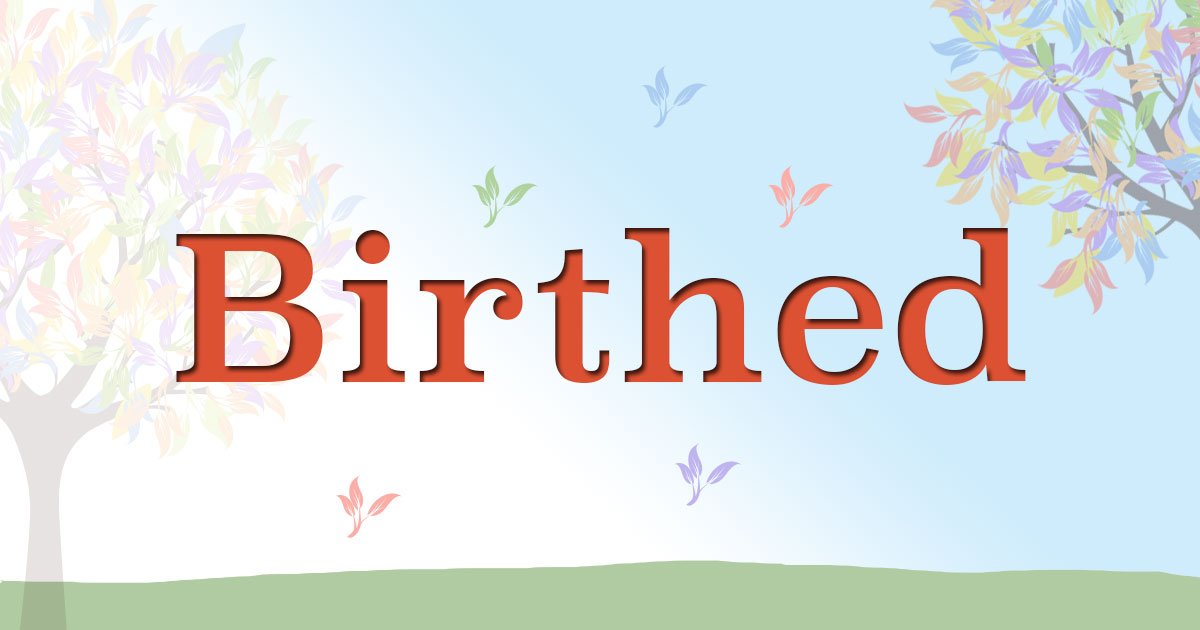
Could sudden loss of a job birth anything good?
Today, I'm glad to introduce you to my friend, Amy. Amy and I met as freshmen in college and hung together for the next four years as part of a small group, choir and all other sorts of shenanigans. Now we both have daughters named Amelia. She's got a beautiful story of redemption to share, so I know you'll want to keep reading!
When I stood on the steps of my freshman dorm building at Samford University in the fall of 1998, my mom handed me a card, gave me one last hug, cried and drove away. I went up to my room on the fourth floor and opened the envelope. It was a store-bought postcard with a beautiful rainbow photo. The verse Jeremiah 29:11 was printed on the front.
For I know the plans I have for you,” declares the Lord, “plans to prosper you and not to harm you, plans to give you hope and a future.
It’s a common verse to give to young college students, and my mother was kindly reminding me that the next four years would bring a lot of change, but that God’s plans were always for my good.
Fast forward fourteen years to 2012. I’m married and have two young children, a home and a thriving career. I work a nursing management job, a position that is meant for someone much older and more experienced than I.
I never imagined that I’d be a working mom, but never less, I grew to love my work and enjoyed the fast-pace of our facility.
If you had asked me in early 2012 about Jeremiah 29:11 and the prosperous plans God had for me, I would have said with certainty that this was it.
I was the primary breadwinner for our home, and my husband had started a new graduate school program to earn a degree he’d desired for years.
I had committed to working the next three years for him to finish school and then we’d transition breadwinner status. That was the plan, so we thought.
And then, it all came to a screeching halt and changed within a matter moments.
Through the work-related traumatic loss of two people — one a patient, one a co-worker — I was no longer able to work as a nurse. Suddenly, all of my college education, career experience, professional license and income source was no longer valuable. The grief was too much to bear and I was incapable of donning my scrubs and hanging a stethoscope around my neck. I questioned how God’s plans to prosper me could still be true after such tragedy.
I had promised to support our family, and my husband was required to work an unpaid internship in addition to classes, which left him little time for a part-time job. I was desperate to find a way to support my family, but knew it couldn’t be nursing.
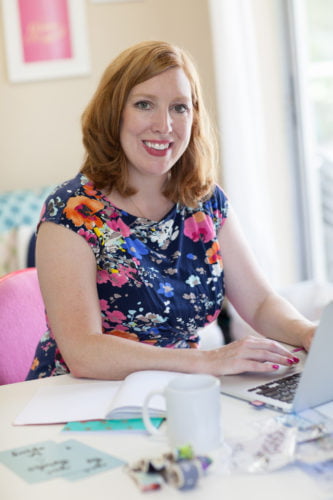 Deep inside me was a rich history of seamstresses. As a little girl, I sat with my Grandma, Granny and Mom and learned to sew.
Deep inside me was a rich history of seamstresses. As a little girl, I sat with my Grandma, Granny and Mom and learned to sew.
I have fond memories of sewing for hours on end during summers and Christmas breaks. I always imagined the day when I would create things people wanted to buy. This dream was long buried under emotion, day-to-day life, marriage and kids. However, somehow in the thickness of mourning, I began to hope in this dream once again.
As a way to take my mind off of the sadness and loss, I began sewing again.
A dear friend saw potential and suggested I start selling online. I asked my husband to “borrow” $50 from our checking account so I could start with the smallest amount of inventory.
I created the LippyClipTM, a clip-on lip balm holder designed to hold products like Chapstick, Burt’s Bees, etc. I remember thinking to myself, “This will never sell. This is such a first-world product. I mean, who would buy this?!?!”
I also remember praying, “God, you can do all things. I know You always have my good in mind. Please, let this work.”
In the summer of 2013, I started small and slow, but was quickly met with a high demand for products and nothing but growth for the business. In the months and years that followed, the business grew and exceeded all of my expectations and goals.
I couldn’t keep up with production, so I made the very intentional decision to grow the business as large as God allows, with the purpose of providing work for as many women as possible. These are women who, for the most part, are otherwise unable to work outside their home. Today, we provide supplemental income to seven women.
My husband graduated with a master’s in counseling and is now a licensed mental health counselor. He works full time in private practice and loves his job.
I’m so grateful for the knowledge of sewing that my grandmothers gave me, and the management skills I learned from years of nursing — both of which I use every day in my business. I’m grateful for the LippyClipTM, which is a first-world product, but symbolizes to me God’s sweet mercy to our family during my dark hour.
I’m grateful for the journey that birthed in me a new direction and prosperous future.
Amy Gabriel is the founder and creative director of Gabriel’s Good TidingsTM, which creates beautiful handmade products to help women find essentials easier and brighten their space. She’s committed to keeping all products made in the USA by women working from home. When Amy is not working, she enjoys beach days, watching college football, swimming and reading. She resides in Orlando, Florida.

Can anything good come from divorce?
Today my dear friend, Alice joins the Birthed conversation that I'm picking up again this Lent. (If you missed the Advent series you can start reading here). I'm so glad to share Alice's hard earned wisdom today. I know you'll find it as moving as I did, no matter if divorce is a part of your story or not.
“You never really expect bad things to happen you. Well, maybe some bad things . . . but not really bad things.” That’s how Elizabeth Hagan begins Birthed, her memoir about infertility and the blessings that eventually came into her life following so much heartache.
In my own life, the unexpected “really bad thing” was divorce. It shattered my life not once but twice.
First came my parents’ divorce, when I was sixteen years old. As if being a teenager wasn’t hard enough! I did not welcome this catastrophe into my life. I didn’t want to hear their arguments. I didn’t want them to hate each other. I didn’t want them to find other partners. I didn’t even want them to comfort me. I just wanted to escape the whole situation, including my own feelings of sadness and shame. How could they do this to me?
This unhappy experience did not stop me from getting married in my twenties and plunging immediately into parenthood. Even as I carried so much negative baggage from my childhood, I was convinced that I would never inflict this heartache on my children.
I was in for a humbling surprise.
Despite my determination to make the marriage work—and to spare my children of ever having to feel the pain that I had felt as a child—my marriage fell apart, and I was powerless to save it.
And so began a dark and stressful time in my adult life. I could write a long, long book about all that went wrong during that time. I could give you all the reasons why my marriage was unsalvageable. I could cast myself as the heroine of the story, the one who endured injustices and who fought to protect our two boys. But that’s not the story that really matters.
One afternoon, during the early days of our marriage meltdown, my ex-husband and I were sitting in the living room—a room that soon would no longer be ours to share—engaged in one of our many unpleasant disputes. As we sat on the couch, facing each other awkwardly, he said to me point blank, “You are a very unhappy person.”
Now, I could have taken that statement very badly. I suspect that in the moment I didn’t take it well, though I don’t remember for sure. But for whatever reason—I choose to think of it as the grace of God—the observation stuck with me. It was like a gnawing and persistent toothache. I couldn’t get rid of it. I couldn’t shrug it off because, deep down, I knew he was right. He might have been my worst enemy at the time (and I’m afraid I was his too), but he also knew me better than anybody else did.
Here’s the truth: I was unhappy.
Yes, I was good at putting on a cheerful front with my friends and coworkers. Sometimes I even managed to fool myself. If I acted like a happy person, didn’t that mean I was happy? But I wasn’t enjoying my life. And now that my ex was bowing out as my life partner, I couldn’t blame it on him.
In her book When Things Fall Apart, Buddhist nun Pema Chödrön writes about the end of her own marriage years ago. She recounts the moment when she learned of her husband’s infidelity, when “my whole reality gave out on me.” She writes about losing her sense of security and about how this opened her soul wide open. She couldn’t fool herself any longer: “instinctively I knew that annihilation of my old dependent, clinging self was the only way to go.” As human beings we tend to cling to the idea that if only the people closest to us—maybe a parent or spouse or boss—would change, our problems would end. It doesn’t work that way, though, and my own life had to fall apart for me to finally recognize this truth.
How had I let happiness slip from my grasp? How had parenthood, so eagerly longed for, become an anxiety-ridden burden instead of a joy? Why weren’t my boys and I having fun together? Why had I stopped listening to my favorite music? Or laughing?
As I began to seek answers to these questions, a season of recovery began for me.
It was time to accept responsibility for my own happiness. Step by step, I began to do just that, consciously letting go of bitterness and blame. “Let it begin with me” became my personal mantra, and it remains so to this day. I never w
anted divorce in my life. But I also never expected the joy that would burst forth—as soon as I was willing to claim it—after such sadness and pain.
![]() Alice Stanton is freelance book editor. For more than two decades she worked as a manuscript editor for the University of Oklahoma Press. A native of New York City, she currently resides in Weatherford, Oklahoma.
Alice Stanton is freelance book editor. For more than two decades she worked as a manuscript editor for the University of Oklahoma Press. A native of New York City, she currently resides in Weatherford, Oklahoma.

During these weeks of Advent, I’m thrilled to offer you the voices of some articulate storytellers— storytellers with wisdom to share about how their experiences of pain or loss is birthing in them something beautiful. Not in a Pollyanna sort of way of course, but in the spirit of what Leonard Cohen once wrote: “There is a crack in everything. That’s how the light gets in.”
Isn’t Advent is all about light shinning in the darkness?
I'm thankful for last week's post from Meredith Holladay. Today my friend Mary Wright Baylor-- who I met on twitter several years ago and recently discovered we were not to distant neighbors (how fun!)-- shares her poignant story of waiting in hope for better days to come.
--------------------------
Of all the seasons, fall is my least favorite.
With a July birthday, I adore summer.
I love the hot sun and heat, outdoor concerts, and fresh herbs in the garden.
As a child, I spent hours in the pool or ocean waves; I relished the freedom of summer and dreaded the return to wearing shoes and homework.
Later, as a young mother, the start of school continued to be a challenge; I missed my children and resisted the structure of homework and afterschool activities.
As a gardener, I find it melancholy to witness the end of the growing season, the harvest of flowers and herbs, the dropping leaves, and frostbitten blossoms. The shorter days and longer nights of fall take its toll on my energy and mood.
So, it was in this season in 2009, that I received a phone call that forever changed my life.
My sister-in-law called to tell me that her husband-my younger brother and the father of four-had tragically ended his own life. Totally devastated, I was overwhelmed to also hear “We need you to go tell your mom and dad.”
“Dear God in Heaven, how can I do that?”
I panicked that this shocking news would kill my elderly parents.
How could I ever tell my father, already frail from Parkinson’s disease and my mother, weakened by heart ailments, that their oldest son had died by his own means?
As darkness fell that September day, my husband drove me over to my childhood home.
I fervently prayed for God to be present, to give me strength, and to give me the language to break such horrific news. In reflection, I really don’t remember much of what happened the rest of that horrible night. Somehow, we managed our raw anguish and survived his memorial service. As we departed the church, I remember that the trees were turning color and the skies were filled with birds migrating.
Following this heart wrenching death, my father was markedly weaker and his Parkinson’s disease worsened.
In October, he was hospitalized twice for respiratory complications. As the daylight hours grew ever shorter, it was clear that his time with us was also drawing nigh.
On Christmas Eve, right after awakening from a nap, he suddenly stopped breathing. He could not be revived. With Christmas carols playing on the radio by his bedside, we surrounded our precious dad resting in peace.
Two deaths in three months. “Oh, God, give me strength! I cannot do this!” But somehow, I did.
On a frigid cold day in early January, I held my mother closely as the wind whipped in our faces and my father’s ashes were interred next to my brother’s.
My memories of the next couple of years are a gray blur.
Though working as a parish nurse, I focused all my energy on my mother. Always incredibly resilient and fortified by her deep faith, she was determined to live as fully as she could.
She continued to volunteer at church, to host family gatherings for holidays, and to join me on many outings. I remember taking her on a late summer day trip to the country. We commented that the fields of corn were drying up at the end of the season. Shortly after that, in early fall, her heart began to fail. As the days shortened and nights grew long, we took multiple trips to the emergency room. Hospitalizations kept me at her side. Though debilitated and homebound, my mother still enjoyed visits from her friends and delighted in time with my grown children. She was elated to learn that my oldest daughter, after several miscarriages, was nearing the end of her first trimester.
As fall progressed, my mother’s decline was marked and soon she was ready for home hospice care.
On a crystal clear November 14, while my remaining two brothers and I held her hands and sang “Amazing Grace,” my mother died very peacefully in her own bed.
With her death, my brothers and I had lost half of our family in three years. “Oh, God, what more do we have to endure?” How could we possibly write another obituary or plan another memorial service?
I was physically exhausted from caregiving for so long. But again, somehow, we found strength and we rallied. The date of her funeral was scheduled for the first Saturday in December on the first weekend of Advent. We thought our mother who loved the rituals of Advent would like that.
On the day before my mother’s service, my pregnant daughter called in great distress.
She had just left a routine ultrasound in which it was discovered that her baby had died in utero. I spent that day, waiting with my son-in-law in the lobby of the hospital as our dreams of our small bundle of new life ended. “How long, oh Lord, how long???”
I remember the dark, bitter cold of that winter. Numbness alternated with despair. How would I ever feel normal again?
Would I ever experience joy? How could I resume “life?” In the months that followed, I simply put one foot in front of the other. I struggled with my faith. “God, where are you?”
I didn’t know what to do other than to heed the psalmist and “to lift up mine eyes unto the hills.” Seasons passed.
And then, slowly and subtly, when I looked up, I began to notice. I noticed glorious sunsets and shooting stars. I heard the beating of a hummingbird hovering over flower blossoms.
I savored fresh basil and inhaled the fragrance of lavender in my garden.
God WAS present.
There was no Hallelujah chorus or trumpet tune. But there were clear signs of God’s omnipresence. By witnessing God at work, I began to heal. Indeed, I began to treasure time with friends and trips with my loving husband. I savored outdoor concerts in the summer and felt peace as waves lapped on the beach.
In this autumn of 2016, I was energized by clearing the bedraggled garden beds and making plans for new gardens next spring.
Perhaps for the first time, I thought that the changing tree colors were particularly vivid and brilliant. Walking our dogs in warm sun and then snuggling by a fire in the evening was cozy. Almost imperceptibly, I recognized that I was not dreading the pending anniversary dates of my family members’ deaths—rather, I felt a sense of peace and serenity.
With a distinct sense of God’s presence, I was not the least bit surprised when on the 4th anniversary of my mother’s death, on November 14, my daughter gave birth to a healthy little girl.
As my tiny granddaughter sleeps, I notice the rhythm of her breathing and feel the fuzz on her little head.
This is Advent. I know that God IS always present. Our cries ARE heard and they ARE answered. And as we are promised, new life WILL come.
After an incredibly fulfilling career in multiple roles and settings in nursing, Mary recently retired (again) as the pastoral care nurse at the Washington National Cathedral. Her “serious” time is spent in volunteering with her alma mater, University of Virginia School of Nursing and Moms Demand Action for Gun Sense in America. Mostly, though, she savors the role of grandmother and dachshund “mom.” An avid gardener, yogi, and social media, she eagerly awaits the retirement of her husband at the end of 2016.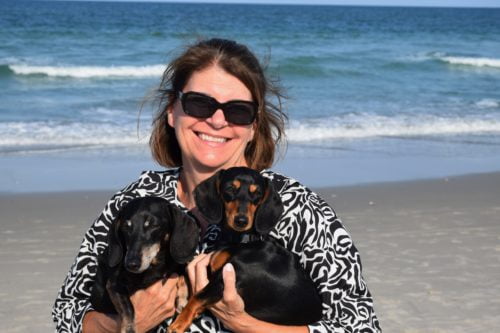
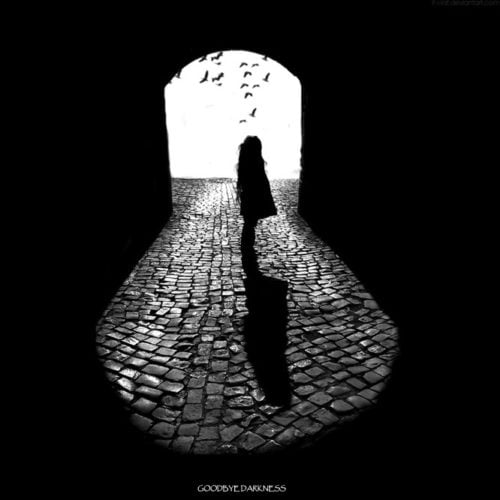
These feel like dark times, don't they?
I feel like the world in which I called to minister changed dramatically post 11/8.
No matter who you voted for President. No matter if you were happy with the results. No matter if you were deeply troubled. No matter what. The world felt different. The way we related to one felt harsher.
Going on Facebook felt like a battleground. Opening up twitter felt like war. Opening up your mouth at work about your feelings felt close to impossible.
"You voted for ___? Really? How could you?" has become a point of conversation among us. Sometimes we just don't want to know the answers.
I've heard how family members have stopped talking to family members.
I've wept over stories like this one as acts of bullying has increased.
I've talked with friends about how they are now deeply afraid for their internationally adopted children's citizenship status.
I've ached with some of our babysitters about how their family member worry they might be asked to leave the country soon or not have access to healthcare anymore.
I've heard from pastor friends all over the country who are now getting frequent calls about whether or not their congregation will be a safe space of refuge if situations call for it.
These are dark times for those of us who are so passionate about inclusion, multiculturalism, and uplifting the cause of the marginalized.
These are dark times for those of us who want harmony, peace, and good feelings throughout our land.
These are dark times for those of who plan to sit next week at Thanksgiving tables alongside folks who are hostile toward any viewpoint that isn't theirs.
So with this brand new day in America, how are we going to get through it?
This week, my book, Birthed: Finding Grace Through Infertility is launching over at Chalice Press.
When people ask me what's it's about, I say it's a story of how I got through a dark time in my own life.
I say it's a memoir of how I got from point A to point B when the worst case scenario happened to me in my dream of motherhood.
I say it's my offering to others walking in similar shoes of grief, pain and loss, infertile or not.
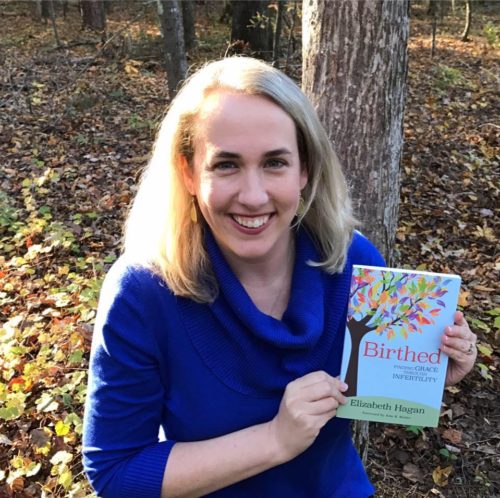 I learned so much from our long season of infertility. I believe I gained some wisdom that I could have gotten in no other season of life. At the very least, I gained some survival tips.
I learned so much from our long season of infertility. I believe I gained some wisdom that I could have gotten in no other season of life. At the very least, I gained some survival tips.
Here are three I'd like to share for those of you despairing today:
These suggestions might just be drops in the bucket. But somehow, someway you and I have to move from where we are to somewhere better.
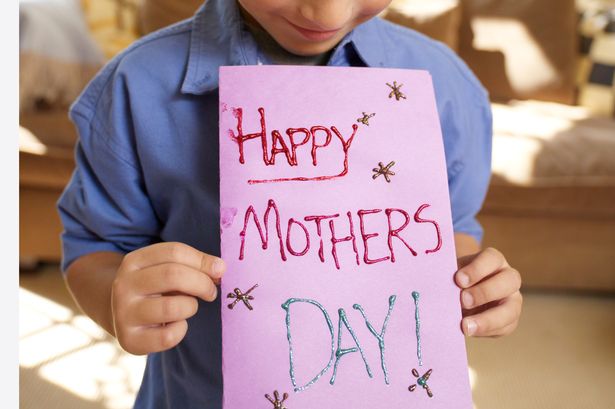 As many of you know, I've written a book about my journey as both a pastor and a person who's struggled with infertility due out with Chalice Press in October (so exciting!). And so with this true as you might imagine . . .
As many of you know, I've written a book about my journey as both a pastor and a person who's struggled with infertility due out with Chalice Press in October (so exciting!). And so with this true as you might imagine . . .
In these years of struggle I've thought a lot about what the church does wrong, what it can do better, and how I might be a voice to help the church be a place that is more inclusive for all women.
So, this week I contributed a post over at Patheos (a fabulous site for conversations in progressive theology) called "5 Ways the Church Hurts On Mother's Day" Here's a teaser.
Mothers Day. In many churches its celebrated as a church holiday when Pentecost, Trinity, or All Saints Day are not. In some, it’s the second highest attendance Sunday after Easter (I know it was in the churches I’ve pastored!). On May 8th, it will be rare that you don’t find a bulletin cover with the title “Mother’s Day” printed on the front.
Oh, how we love the day! In fact, so many churches have Mother’s Day routines executed with robot-like procession. Few can imagine doing it any other way.
But in this high exalted practice of Mother’s Day celebrated in churches of all sizes and flavors, I believe hurt occurs. Hurt occurs in practices like these 5 common Mother’s Day observances . . . You can read the rest by clicking here.
I've also contributed a post over at Project Pomegranate. This is a ministry that provides non-directive, spiritual resources about infertility, pregnancy loss, and infant death to individuals and their faith communities through its blog, books and other resources. You can find them on Facebook.
My post is called, "A Long Labor" a personal reflection about what it means to labor through infertility, though in the end the work might not result in a typical pregnancy. Here's part of the story.
I have been in labor for almost eight years. There have been ultrasounds. There has been blood work. There has been pain: both physical and emotional.
I feel called to motherhood. It’s as strong as the calling I felt to ordination almost ten years ago. It’s as strong as the calling that I felt to marry over eight years ago. But, I am still a childless mother in the the way most mothers are recognized. My bio below lists no children in our immediate family.
When I first began the journey toward motherhood, I was naïve.
After being married a year, I thought we’d start trying to have kids and then nine months later pop out a beautiful baby. I saw so many of my friends become mothers so easily. My mind and body felt strong. I saw no groaning up ahead. Why would childbirth not happen easily for me? You can read the rest here.
Also check out this post from my friend and fellow clergy colleague, Renee Kenley Purtlebaugh about her long season of grief. She has a great story to tell too.
I'm thankful for these ministry partners helping to tell stories so the silent journey of infertility is silent no more.
Most of all this weekend, I'll be reminded of these truths:
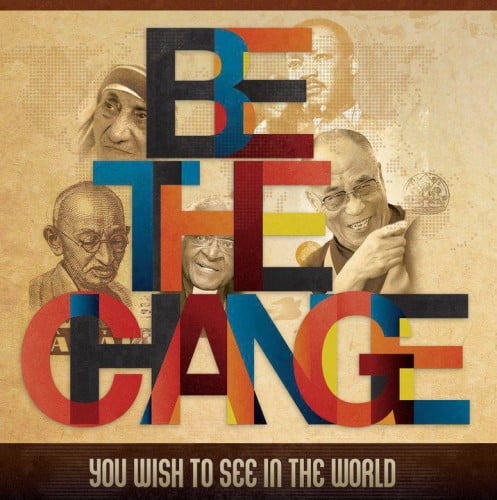 Gandhi once said, "Be the change you wish to see in the world!"
Gandhi once said, "Be the change you wish to see in the world!"
And, truly, God bless the fixers in this world because there are so many big problems out there that need solving.
There are children who need to be feed-- if only someone will figure out the resources of how to get them food.
There are elderly who are literally dying to know that somebody cares about them-- if only someone could motivate those of us with extra time to be moved in their direction.
There are diseases in certain parts of the world that could be prevented-- if only someone could move better medical care in their direction.
What about those problems that though we put all our might, all our effort, all our prayers toward, nothing seems to change?
What do we do then?
Such is a terrible plight for the best fixers among us.
I write this because I often try to be a fixer. And I know the pain of delayed expectations. The pain of knowing that as much as I want to fix something for myself or for someone I care about-- I can't.
We all hate this hard truth of life: we're not in control.
As much as I want to, I can't make a job to come out of thin air for my unemployed friend.
I can't take way the cancer diagnoses for that 12-year-old girl who I adore!
I can't re-write laws in countries which are unjust, keeping essential resources away from the most vulnerable who need them the most.
I can't spark joy into the lives of my friends who are weighed down in a season of life of funeral after funeral.
I can't. And it's so frustrating!
But what I can do is be is right where I am. I can be right where my loved ones are. I can stand with them in the midst of our unknowing. I can sit with my grief and theirs too, if I'm invited.
And I can live with the discomfort-- not run from it.
Yet, it's so easy for a "fix it" mentality to set in, though. Before we know it, we're saying:
"Oh, let's find a 3rd opinion and a 4th for that timeline of death"
"Oh, let's send out twenty more resumes and re-write 20 more versions of your cover letter."
"Oh, let's fill up the days with appointments and evenings with parties-- all of my time should be filled!"
For I believe that God calls us to live with our discomfort.
Not as punishment. Not as a fear producing exercise. But as an expression of our faith.
Because sometimes, the BEST things happen when we have no idea where we are or where we're going next. And as we give our pain time to move through us.
One of my favorite scriptures comes from Exodus 14. Moses and the Israelites found themselves at a pretty desperate place too.
They'd only just left Egypt after 400 years of slavery and Pharoah was on their tail. Moses felt beside himself in worry with so much responsiblity on his shoulders. He could not see a way forward! And, he cries out to God for help.
Or in other words, "Live with the discomfort, Moses! And let Me be in charge."
So wherever you find yourself today, hear me preaching to me and preaching to you: help is always on the way! This trust is what faith is all about.
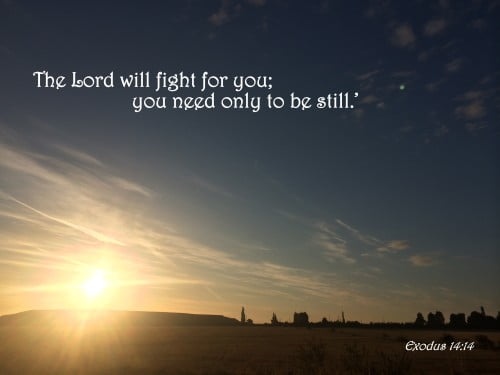
 What do you do when the unspeakable happens to those you love?
What do you do when the unspeakable happens to those you love?
A month or so ago, a dear seminary friend, Rebekah who had recently lost a baby at 20 weeks shared this list on Facebook as a way to help people know how to care (brave and awesome of her!).
It was a handout that she'd shared in an adult education class in the church she serves in New York City.
I loved the list-- not only because it helped me understand where my friend was in her journey of grief, but because it was a great conversation starter for other friends who were going through their own difficult situations.
It is so easy, even as a person who wants to have a compassionate heart to get so consumed in your own stuff. It's easy to forget the grief is long journey. It's easy to forget that a person is more than just their pain, especially when their pain so raw at a particular time. It's easy to fear saying the "wrong thing" that you end up doing nothing at all.
So, here's some suggestions for some helpful and less helpful approaches.
Four categories of how we DON’T help; what not to say to people in pain:
--The “fix it” sayings: Resist any urge to jump to a conclusion for someone; folks don’t always need a solution, it feels dismissive of their pain.
--Sayings that can dismiss pain: Any sentence that begins with “at least”, “This too shall pass”, “Everything happens for a reason”.
--Bad Theology: when in doubt, don’t open your mouth. Do not say: “Everything is meant to be or "happens for a reason”, “When God closes a door, he always opens a window”, “God doesn't give you more than you can handle”, “It was God’s will”—(don’t ever say this unless you’re God), “God needed another angel” or anything that communicates that God takes the person away.
--“I know what you’re going through”: Don’t rush to share your own experience; it can minimize the pain of someone else who needs to share their own story and feelings. Finding commonality is helpful, but sometimes folks need you to listen. Especially don’t do this if the outcome was bad: “I know of someone who had that kind of cancer and she died”
Four ways of how we CAN help:
--Ministry of presence: Being present, letting them be angry/sad, telling them that it’s not ok that this happened and you’re a safe person for them to talk to.
--Intentional listening, without judgment and without an agenda. Listen with the intention of helping them think through their decisions. Don’t try to fix their problems. Be careful of interrupting.
--Doing the practical things: laundry, food, childcare, cleaning, etc.
--Remembering that they are more than their pain. They have another identity outside of their pain—they are more than someone with cancer, more than a widow, more than someone who lost a parent, a child. Some folks don’t want to enter a conversation and have everyone be sad for them all the time. They want to move on and have another identity.
Thanks, Rebekah! What might you add to the list?